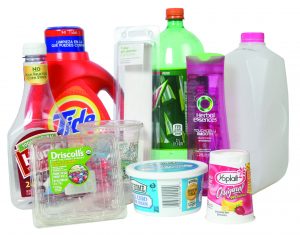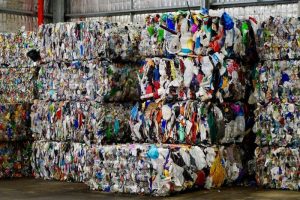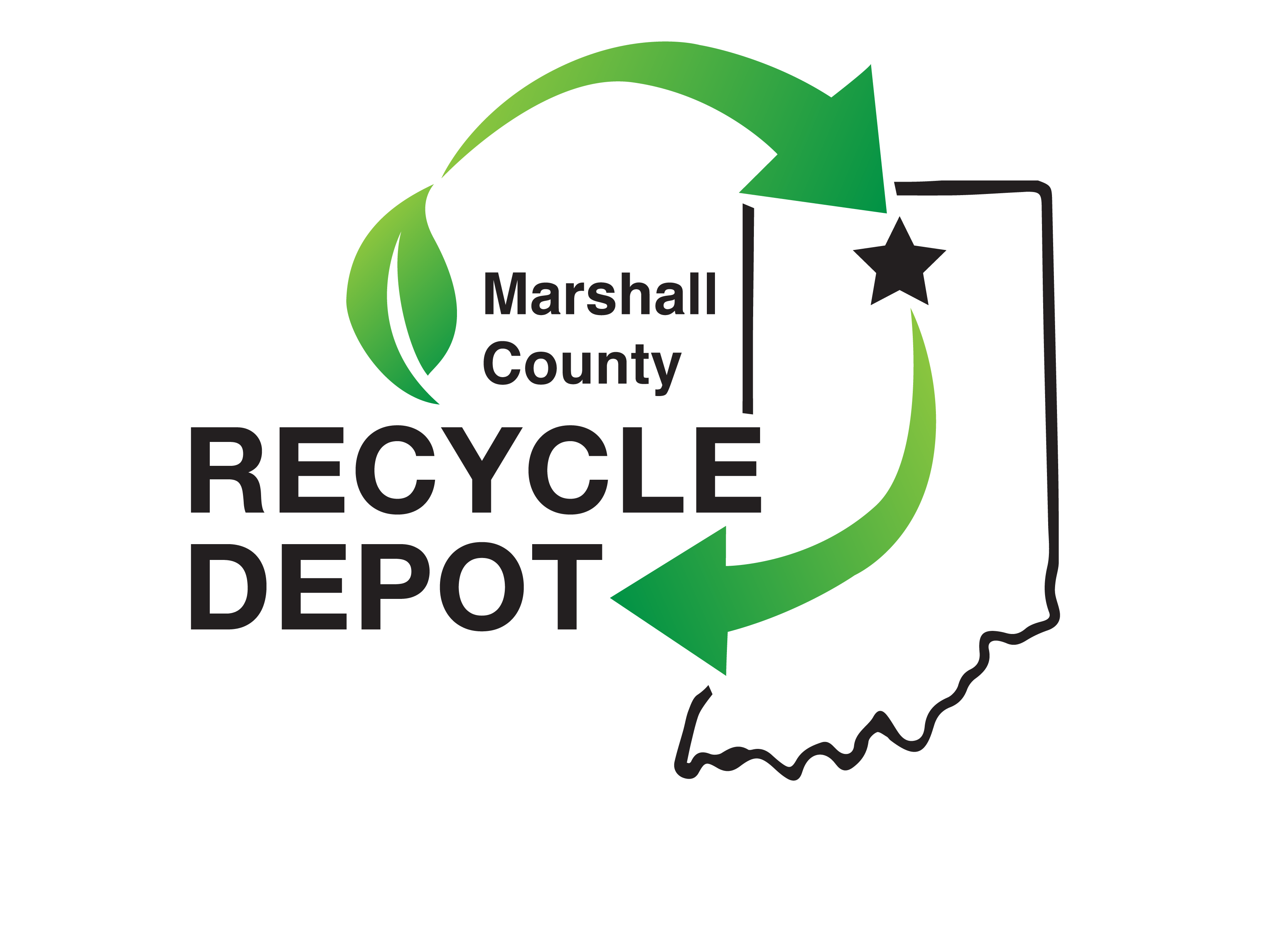
Not all plastics are all recyclable in Marshall County.
A few weeks ago, the City of Plymouth’s recycling and waste hauler, Republic Services, announced that it would be picking up trash weekly, but recycling was going to every other week with new routes. (See the conclusion of the column for relevant route information). The new schedule will be in force starting November 5th.
People have questions about the changes, so I will endeavor to answer a few of them here.
“What if my recycling bin is full every week?” Are you concerned that fewer pick-ups means an overflowing recycling bin? I have three solutions. One, request an extra bin from Republic Services. Two, recycle just the items that Republic wants. Three, reevaluate the items you are buying. As you shop, avoid bringing home material that will need disposal. For example, commit to finally bringing your own bags to the store. Buy apples loose, rather than in a bag (and skip the plastic produce bags). Skip bottled water—just drink tap out of your own reusable bottle.
“I don’t know what to put in my bin!” Visit www.recyclingsimplified.com for a complete list of items that can go in your Republic bin. You will notice that the list is short: flattened cardboard, paper, metal cans, plastic bottles and jugs. The list of recycling no-no’s is longer: plastic bags and wrappers, soiled paper, Styrofoam, clothing and shoes, greasy pizza boxes, tools, food, toys, electronics and batteries, construction waste, medical waste, yard waste, diapers, and scrap metal. These items should never, ever go in your recycling bin.
“What about glass?” Glass bottles and jars are still being accepted for recycling right now. No other glass items—such as ceramics—can go in your bin.

Bales of recyclables are sold as commodities.
“I hate throwing stuff away that could be recycled!” For most of us, recycling is something virtuous. For people in the recycling industry, though, our recyclables are raw materials that once baled can be sold to another company to make something else. Unfortunately, some of the materials we buy don’t have an end-user. If no one is buying the material, or if it’s dirty or made of more than one type of material, it doesn’t make sense to collect it for recycling. It becomes contamination.
“Why is contamination suddenly such a big deal?” Prices for recyclables across the board are very low. For instance, manufacturers can buy “virgin” plastic for a lot less than recycled plastic. That’s why waste haulers are recycling fewer materials—the ones that still have value. The markets will rebound eventually, but for now, contamination costs money and labor. Our recycling fees could go up if loads are consistently contaminated.
“Are they landfilling our recyclables?” Here in Marshall County, our recycling loads are evaluated at the Culver transfer station. If the load has too much garbage in it, it could be landfilled as a cost-saving measure—it’s too expensive to re-sort. Everyone must be on board with keeping their bins clean—it must be a community effort for recycling to be affordable. Clean loads ARE getting recycled at RecyclingWorks in Elkhart, a materials recovery facility.
“Why can’t I recycle Styrofoam? It has a number six on it!” Plastics are particularly troublesome to sort because there are seven different types. Right now, the recycling markets are hungry for plastic jugs and bottles—items with a neck. These are usually labeled with a one or a two. Other plastics, such as bags or shrink wrap, are also recyclable, but not in your tote—they should go to Martins, Kroger, or Walmart.
“Why can’t bags go in the bin?” Because they get tangled in recycling equipment, which relies on spinning disks and conveyors to move materials through the sorting process. Recycling should go into your bin dry, clean, and loose—no bags.
“Is recycling even worth doing? China won’t take our stuff.” China might not, but Indiana is a manufacturing state with a healthy recycling industry. Not everything is recyclable, but the materials we’re collecting now are being put back into use by Hoosier companies. Recycling is still better than mining or extracting virgin materials that are non-renewable.
If you have questions about recycling, contact us at the Recycle Depot. To learn about the new routes in Plymouth, watch your water bills for updated trash and recycling schedules, or check out the City of Plymouth’s Facebook page. You can also call the Clerk’s office at 574-936-2124 or the Mayor’s office at 574-936-6717 for more information.
